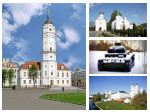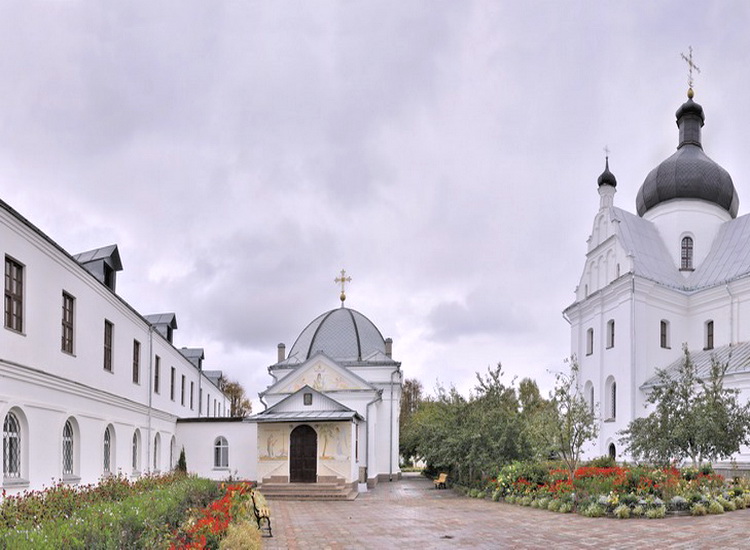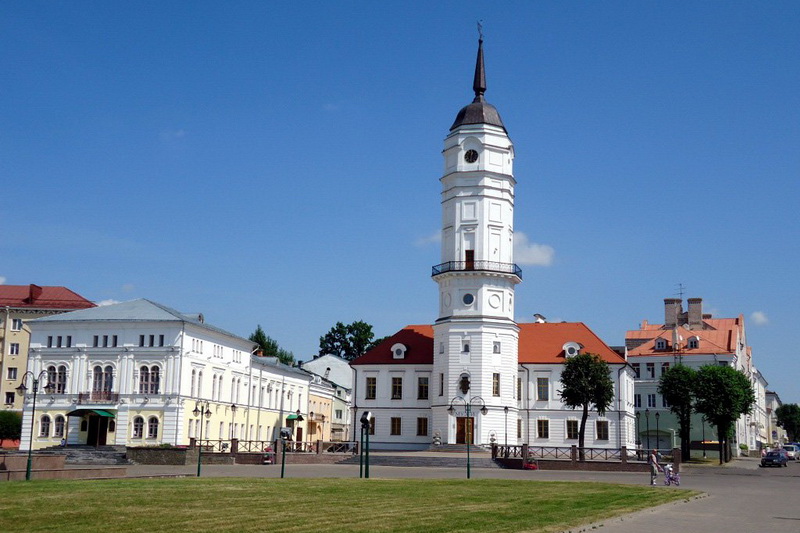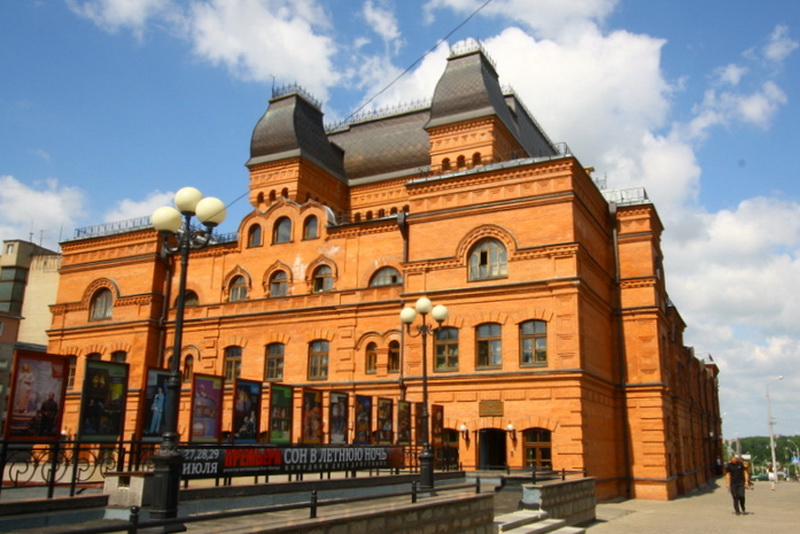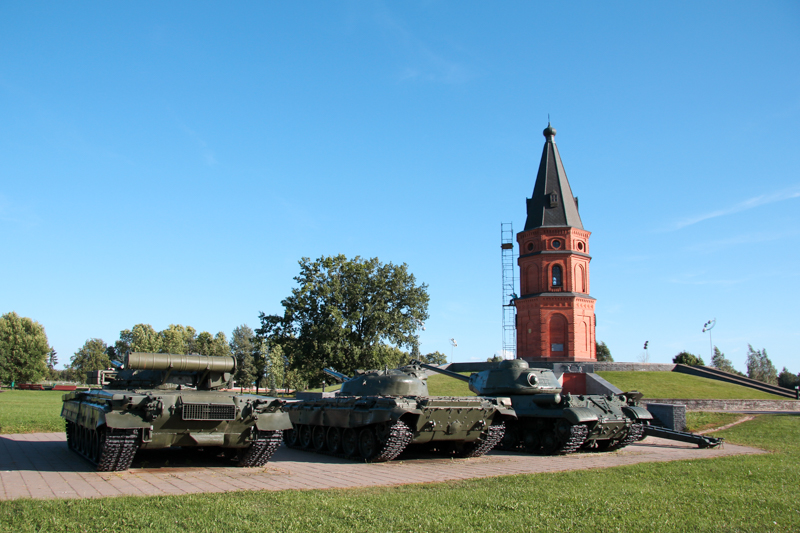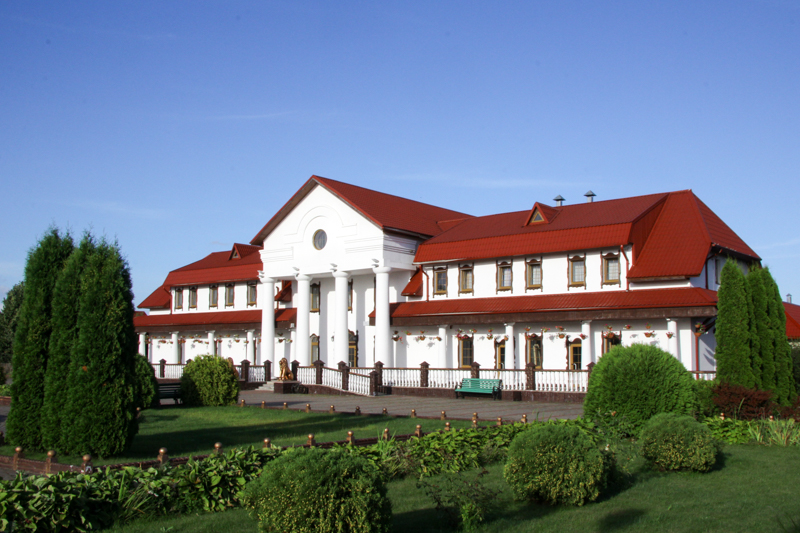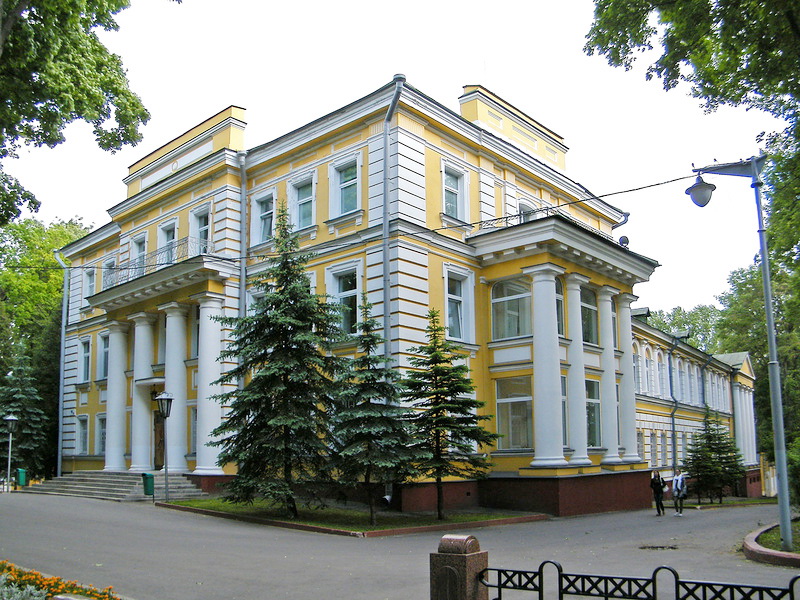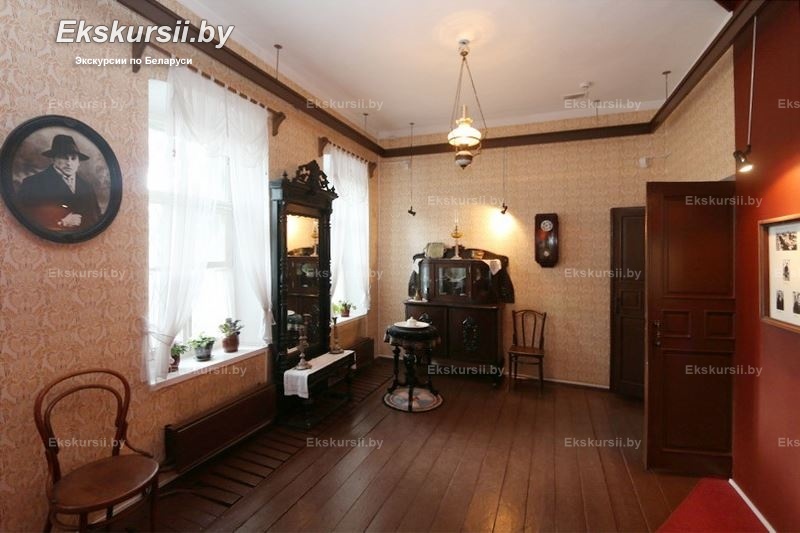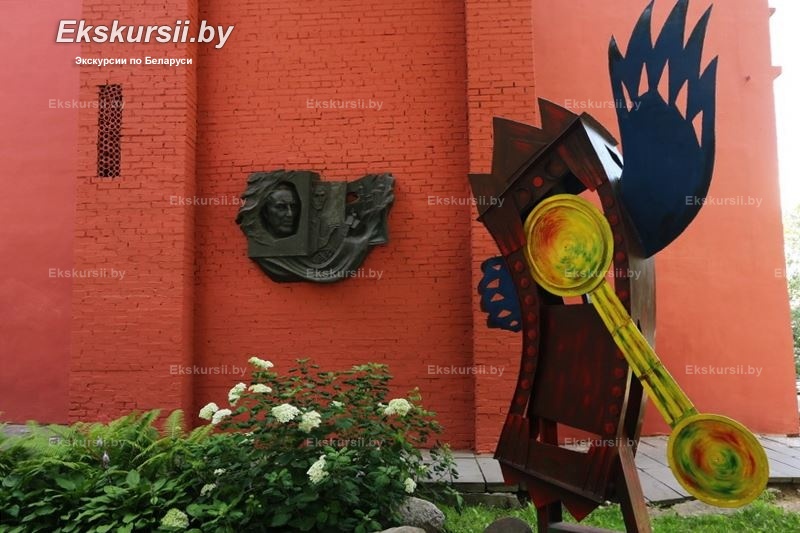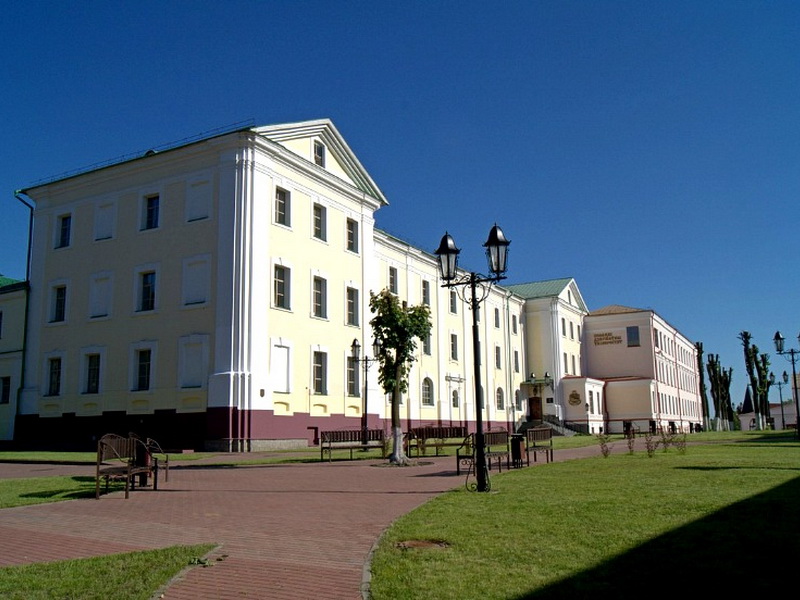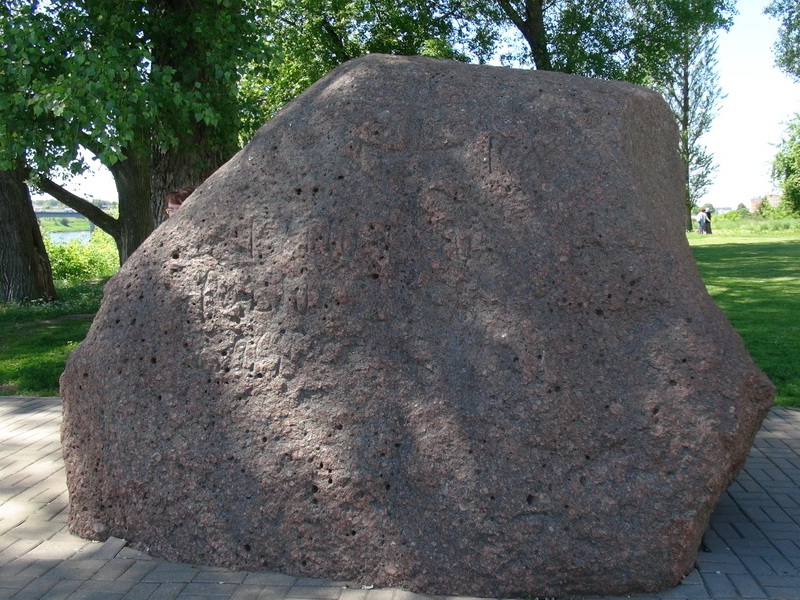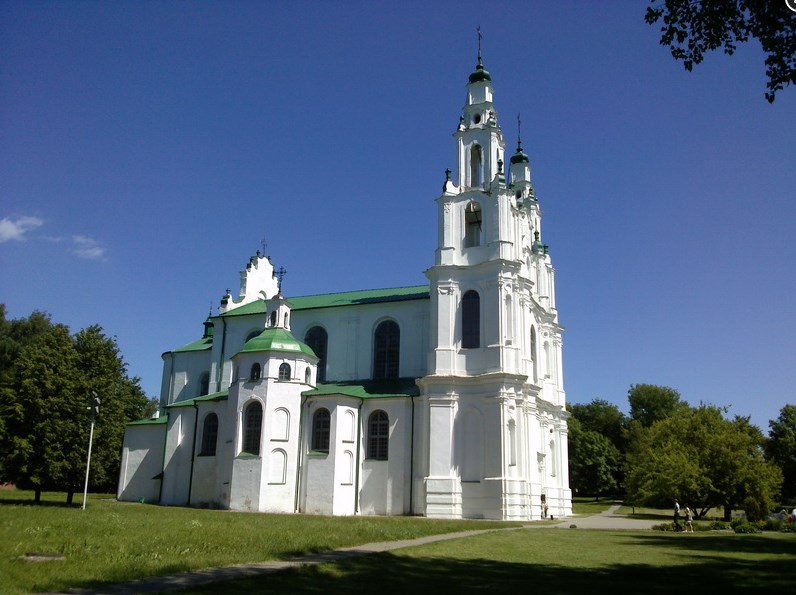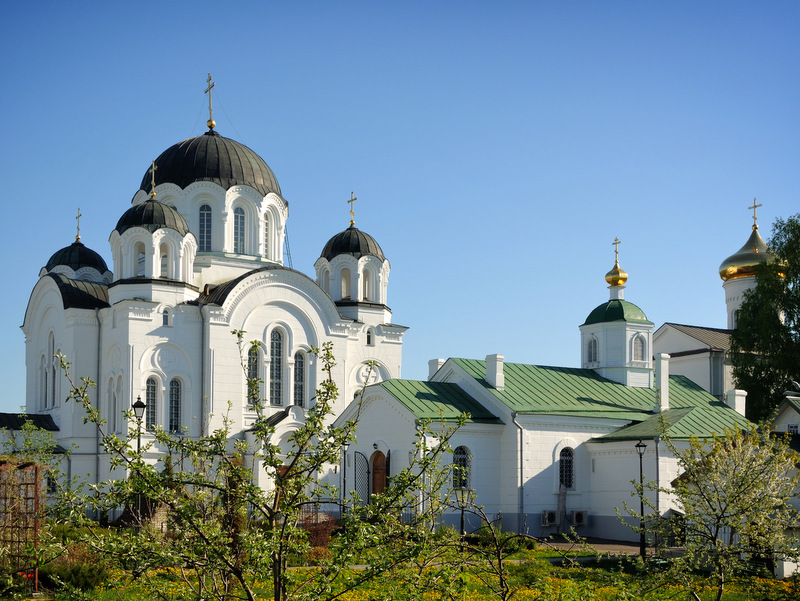Mogilev - Bujnichi - Vitebsk - Polotsk (3 days)
Tour descriptionPrice
per person
9'130 ₽
4'447 ₽
The cost of excursions is approved in Belarusian rubles and when paying in other currencies the final cost may differ from the one indicated on the site depending on the exchange rate of the card issuing bank (MIR, Visa, Mastercard).
Included in the price of the excursion:
- excursions according to the program
- certified guide services
- transport services
Description
Mogilev, Vitebsk, Polotsk - cities with a special color that you will surely feel. Feel walking along the embankment of the Dnieper and making a wish on the square of Zvezdochet. Learn about the "father of Stalingrad", visiting Buinichskoe field, where fierce tank fights took place for Mogilev and the plot of the bestseller "Alive and the Dead" was born. Feel a special atmosphere from which inspired the inspiration of Marc Chagall and Ilya Repin, finding the plots of their paintings in Vitebsk. And finally, you will visit the "cradle" of the Belarusian statehood - this is the first city and principality in the territory of Belarus - it's an ancient Polotsk.
Excursion type
Sightseeing
Distance
490 km
Duration
3 day
Language of training
Russian
Excursion subject
Excursions to the castles, Weekend tours, Tours to Belarus, Holy places excursions, For schoolchildren, Ethnographic
Kind
Bus-Walking tours
Program
day 1
Gathering the group
Breakfast
Church of St. Stanislaus in Mogilev
In the first half of the 18th century, шляхтич Lyubuzh Zenkovich with servants attacked Mogilev – many citizens were wounded, many died. Also it hid, from the being eager revenge of crowd, in a chapel small. But to anger of people there was no limit – they pulled out a shlyakhtich from a chapel and killed. The Polish king, having learned about murder of Catholic, decided to punish citizens: "residents have to investigate all stone constructions and to construct a church in the memory of the murdered Zenkovich of this stone". – The legend says. Anyway, but the base is difficult from the most different size of stones. And the remarkable temple reached our days that is famous for one of the fullest and professional evangelical cycles of Belarus and original frescos of great art value.
Nicholas monastery with the church of St. Onufriy
St. Nicholas Monastery – orthodox convent which history originates deeply in the 16th century. Then it began to be formed around the St. Nicholas Cathedral included in UNESCO in the register of the most valuable constructions of Europe in Baroque style. Time repeatedly introduced the amendments in history of monastery: female and men's monasteries, archive, rate of the commander-in-chief Nicholas II, prison and Stalin repressions. Finally, fortunately, the monastery and, considerably the affected, unique temple is returned to believers. What traces left different time of an event here? It shocks and infinite opening. You learn about them at an excursion.
Mogilev City Hall
The Mogilev town hall – one of little remained in Belarus. She became a symbol of freedom and independence not only for residents of medieval Mogilev, but also for all subsequent generations of citizens. More than once it collapsed unfinished, but nevertheless towered over the city in 1698. Exactly here the city magistrate sat, here citizens bore "litter from a log hut", wives brought husbands that on the Gospel to give "a zarecheniye from alcoholism". The empress Catherine II, the Austrian emperor Franz Joseph II rose by the observation deck of a town hall. Here in 1917 Nicholas II abdicated. A symbol of bitterness and loss it marked itself deliberate explosion in peace time. But even after it, in 1993, what was strongly made by great-grandfathers was built up. How fate of a symbol of the city was today? We learn during the excursion.
Stars Square
The area of stars – really amazing place not only for Mogilev. It is the only monument to the astrologer in the world. It became undoubted decoration of a historical part of the city. "Astrologer" is executed on the project of the outstanding Belarusian sculptor Vladimir Zhbanov. Around it 12 chairs with zodiac signs – do not forget to sit down "on the sign" and to make the most treasured wish. And after - for a while to be transferred to Hollywood – to walk across the local Walk of Fame and will get acquainted with the most known and outstanding names of Mogilevshchina.
Mogilev Drama Theater
Thousand times N.V. Gogol was right, having written that "theater at all not a trifle at all not an empty thing if you take into account that in it the crowd can be located suddenly and that all this crowd, in anything not similar among themselves, can be shaken suddenly by one shock, begin to sob one tears and laugh one general laughter. This such department with which it is possible to tell much the world of good". So considers also all structure of the Mogilev Drama theater located in the building built for it. In the Mogilev theater Shalyapin sang, Rachmaninov played, Nicholas II applauded, Kolchak, Kalinin and Dzerzhinsky reviewed the troops. We recommend to learn more about it and to you.
Lunch
Bujnichi field
The Buynichsky field - his writer Konstantin Simonov described in the novel "Live and Dead". There passed the first line of the Soviet defense. Through Mogilev the group of the German army "Centre" went to Moscow, planning to organize the transit point in Mogilev. Long 2 weeks many times the conceding defenders of the city resisted enemies, considerably having changed the war course. The German troops in fear were silent about defeat, having told that the city is occupied long ago. Later Mogilev will be called "the father of Stalingrad". And the war correspondent who was here, then, and later the famous writer Simonov bequeaths to dispel here the ashes. Today on the place of tank battles the memorial keeping memory of military years is created.
Ethnovillage Mogilev
The Belarusian ethnographic village of the 19th century is a beautiful and well-groomed territory, the city of masters, refined design, paved paths, exotic trees and flowers. This place where you will get acquainted with crafts and life of mestechkovets of the 19th century. You learn how for only a few seconds to turn a piece of clay into the work of art how to force threw also a tree to take a bizzare shape, work of masters of an embroidery and what true value "вышыванак" is how laborious. You can buy production of masters for memory.
Check in
Free time
At the request of the group it is possible to visit Mogilev E.R. Romanov regional ethnographic museum, The museum of Mogilev history, Mogilev Drama Theater.
day 2
Breakfast
Check out
Moving in Vitebsk (160 km)
Palace of governor
The palace of the Governor decorates Zapadnaya Dvina Embankment from the second half of the 19th century. The beautiful Palace Square became the favourite place of citizens from the moment of the emergence – it was not similar to others. Force and tranquility of the palace were in harmony with small benches along Dvina, the streaming water of the fountain and wind music reaching from the palace. And it reached often, receptions and balls were not a rarity – it becomes obvious if to remember some guests and inhabitants of the palace: шляхтич Kudinovich, brother of the empress Maria Fyodorovna duke Wurtemberg, Napoléon I, Nicholas I's brother prince Konstantin Pavlovich, writer and first Russian historical romantist Ivan Lazhechnikov. And at the beginning of the 20th century the most famous American Isadora Duncan danced here. We suggest to see the palace and to you.
Church of the Annunciation in Vitebsk
Annunciation Church – one of the oldest in Vitebsk, so, for certain, kept something unusual and unique that you and should learn. There was it in the 12th century as the embodiment of Old Russian architecture. Also the architecture of the temple which more than once is already reconstructed owing to time and events, and an original laying of "the drowned row" - used only in 2 temples of the world – in Vitebsk and in Constantinople is interesting.
Church of the Annunciation in Vitebsk
Annunciation Church – one of the oldest in Vitebsk, so, for certain, kept something unusual and unique that you and should learn. There was it in the 12th century as the embodiment of Old Russian architecture. Also the architecture of the temple which more than once is already reconstructed owing to time and events, and an original laying of "the drowned row" - used only in 2 temples of the world – in Vitebsk and in Constantinople is interesting.
Vitebsk City Hall
The Vitebsk town hall – a fine monument of architecture and an example of a combination of two refined styles: baroque and classicism. A town hall – a symbol of the city which keeps the memory of times of independence and self-government granted with the Magdebourg right. She organically fitted into ensemble of the historic center of Vitebsk which draws attention with a set unusual the embodiments of an architect thought.
Cathedral of the Assumption in Vitebsk
In the middle of the 18th century on the high Uspensky mountain that contains a minimum of 1000 of existence, monks to the baziliyena built the stone temple, on the place of former wooden. Time is ruthless – it was repeatedly destroyed and changed. Restoration of initial shape is complete recently - in 2011. And now Assumption Cathedral as if floats again over the city and the river – its domes are visible from all corners of Vitebsk, and also the ring of the biggest bell in Belarus is far heard. Only the beautiful twisting ladder connects it to the earth.
Victory Square in Vitebsk
In view of events of the II World war – there is a lot of memorial complexes devoted to it in Belarus. Vitebsk did not become an exception – here the biggest square in Belarus – Victory Square reminds of events of those years. Efforts of remarkable architects created unusual and very solemn complex which includes the composition "Three bayonets" with bas-reliefs reminding "Kurgan of Slava", the Eternal flame, 2 pools with fountains, thematic sculptures and the system of illumination which creates the special atmosphere at the Victory Square in the evening.
Lunch
House-Museum of Marc Chagall
Vitebsk - the Homeland of the world famous artist Marc Chagall. Throughout all life of the master Vitebsk was a perennial spring of inspiration. Domes of temples and ancient small streets, tiny houses and shops with signs, tapes of wooden fences and carriers on streets forever remained on picturesque cloths, together with its well-known angels and lovers soaring in the sky … Marc Chagall's museum will open for you pages of life and works of the artist.
Summer Amphitheatre
Summer Amphitheater – the main concert venue of the international festival of arts "A Slavic market in Vitebsk" since 1992. The open concert hall instantly won popularity among performers. From the first "A Slavic market" it became the main concert venue of a festival. For quarter of the century, namely it was executed to an amphitheater so much, its stage was visited practically by all famous performers of the CIS countries. The grandiose construction with the modern light and sound system developed by infrastructure is glad to both entertainment stars, and the audience, and fans of travel.
Art Center of Marc Chagall in Vitebsk
Geography of places associated with the name of the artist Marc Chagall, is very wide - France, Switzerland, Germany and Britain, the United States and Israel. Painting the ceiling, «Grand Opera» in Paris, stained glass windows in churches in Mainz, Zurich and Tyudli, in the synagogue in Jerusalem, mosaic panels for the National Library in Chicago, thousands of paintings and graphic works that are now in different countries on different continents. During his lifetime, the length of almost a century, Chagall became a real «citizen of the world». His work is close and understandable to people of different nationalities and faiths. However, it was in the life of a great artist town, memories of which he carried through his life, - Vitebsk. That have remained in the city, You also will examine those works in Marc Chagall's Art center.
Check in
day 3
Breakfast
Check out
Moving in Polotsk (105 km)
Сomplex of Jesuit collegium in Polotsk
Jesuit коллегиум in Polotsk – the first Jesuit educational institution in the territory of modern Belarus. Thanks to teaching only in local language, to high education level, big library and laboratory, the number of students increased from 5 to 450 people. The richest коллегиум was the cultural and educational center of the Polotsk lands and received the high status of academy where 700 people studied already. Here continues the existence tradition of education – in an architectural monument of Baroque style the Polotsk State university was located. In a kollegiuma the exposition "Reconstruction of the project of Gabriel Gruber "The mechanical head is open" - it is executed in Socrates's image and is ready to answer all your questions in 5 languages.
Epiphany convent in Polock
The Polotsk earth long since is famous for the history, social and religious life. Among other witnesses there is development of religion in the city, pilgrims Sacred and Bogoyavlensky Polotsky attracts the monastery. For 5 centuries of existence he repeatedly burned and burned down completely, was reconstructed and received guests of honor. At the end of the 18th century he was visited by Catherine II then it noticeably changed – the two-storeyed big case was completed. Today in it the Museum of the Belarusian publishing and the museum library of Simeon Polotsky who taught at brotherly school before went in Moscow to train Ivan, Sovyyu and Fedor – children of the Russian tsar Alexey Mikhaylovich is located.
Borisov stone
Someone sees in them memorable signs of the prince, someone boundary marks or track signs, someone entreaty about the help – but all of us understand that it is unique and remarkable witnesses of legendary events which occurred tens centuries ago. It is about the whole series of huge stones – boulders - with the cut signs and any inscriptions – you will see one of them. The stone which has received the name Boris is brought to the Polotsk Sofiye and majestically welcomes guests. And on him an inscription "Jesus Christ. My God pomoz to the slave Boris".
Saint Sophia Cathedral in Polock
From what party you wouldn't drive up to the city – you will see a majestic and graceful baroque silhouette of the Polotsk Sofia. Have built the most ancient Christian shrine and the first stone temple in Belarus, one of the earliest in Ancient Russia 10 centuries ago - the copy of the Byzantine monastery. Now, from initial shape, only the crypt, three apses, a part of internal columns and finishing of the base have remained. Today St. Sophia Cathedral - the first representative of art who has incorporated lines peculiar to the Polotsk earth. Church services are stopped even here at the beginning of the 20th century: now it is the unique museum and one of the best concert halls of Europe where you will hear fine body or chamber music.
Lunch
The Savior and St Euphrosyne Convent in Polotsk
The young beauty – the princess who decided to become contrary to will of the father the nun, and in a consequence the mother superior of convent, the first in the territory of Belarus, – Euphrosyne of Polatsk. Exactly thanks to it in Polotsk there was a Spaso-Evfrastiniyevsky monastery, and in it a spiritual symbol "Zyaml_ Stalemate Belym_ Wing _" - an invaluable cross of Eufrosinia. The orthodox convent is built 9 centuries ago. Its first temple – the Spaso-Evfrosiniyevsky church decorated with the most ancient frescos – was built only in 30 weeks and became the best, from the remained constructions, an example of drevnepolotsky architecture.
Transfer to the railway station
The end of the tour
